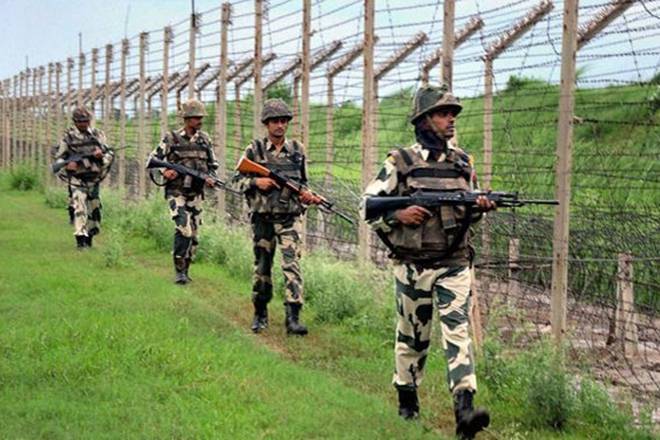Calls for moratorium on artillery fire on LoC
India to assess situation before responding
Sanjeev Pargal
JAMMU, May 11: Pressure built on Pakistan post-Pulwama terror attack in South Kashmir in which 44 CRPF personnel were martyred has started yielding desired results with Pakistan extending offer to India to de-escalate on the borders and even announcing that it was ready to remove the Special Services Group (SSG), the Special Forces of Pakistan, from the Line of Control (LoC) in Jammu and Kashmir which had been deployed after Indian airstrikes at Balakote in which number of Jaish-e-Mohammed (JeM) militants were killed.
Official sources told the Excelsior that Pakistan military has made these and other offers through institutionalized military channels of communications including talks between Director Generals of Military Operations (DGMOs) dropping enough hints that it was unable to bear the might of Indian Army on the LoC including very high costs of deployment of troops on the boundary with India.
Breakthrough, according to sources, was achieved during the hotline channels of communications. Though the Indian response was awaited, they said, the Army was likely to assess situation on the LoC in Jammu and Kashmir especially twin border districts of Poonch and Rajouri before sounding Pakistan about its response.
“An offer has come from Pakistan to de-escalate. They have also offered to remove troops of their Special Services Group from the LoC which had been deployed following Indian airstrikes at Balakote in Khyber Pakhtunkhawa province of Pakistan. In addition, Pakistan has also suggested moratorium on artillery fire from both sides,” sources said.
India and Pakistan had used artillery fires on the LoC in the wake of Pulwama terror attack that was revenged by India with air strikes at Balakote in Pakistan followed by firing of bombs by Pakistani F-16 jets on the LoC in Nowshera and Mendhar sectors in which an F-16 of Pakistan was shot down.
Pakistan army had used artillery fire to target civil population on the Indian side in Poonch and Rajouri districts in which half a dozen civilians were killed. The Indian side was forced to retaliate with artillery fire. This was after long time that the two sides had used artillery fire on the LoC, sources pointed out.
They confirmed that Pakistan side has started relenting after suffering heavy losses in Indian airstrikes followed by declaration of Jaish-e-Mohammed supremo Azhar Masood as “global terrorist” and retaliatory shelling by the Indian Army and it was in this context that no major infiltration attempt by the militants on the LoC, which had the backing of Pakistani troops, or any other kind of “cross-border tactical action”, which is described as action by Border Action Team (BAT) comprising Pakistan Special Forces and militants, has been reported after “Operation Balakote”.
Moreover, sources said, the terror launching pads on Pakistan side of the LoC opposite border districts of Poonch and Rajouri, have also gone empty for the past few days.
“No major movement of the terrorists has been reported from the launch pads during past about a fortnight,” they added, which showed that Pakistan was now unable to meet the pressure buildup by the Indian troops as well as the world powers on terrorism.
Sources said thinning out of terror pads has also been reported from active areas like Poonch and Rajouri district and there were clear signals visible from Pakistan about de-escalation due to multiple factors including crippling financial condition of the neighbour, who was unable to meet huge expenses of troop deployment on the LoC.
In another signification development, sources said, Pakistan army didn’t interfere with repair of bunkers on the LoC, which is a routine annual exercise conducted by the Indian troops ahead of Monsoon to keep bunkers intact to survive torrential rains.
Previously, Pakistan army used to open firing on the Army soldiers repairing the bunkers. However, so far, they haven’t done this, sources said but added that the Indian response to Pakistan offers would depend on the basis of reports of the Field Commanders after obtaining ground assessment.


